Computational Fluid Dynamics (CFD) Blog Posts
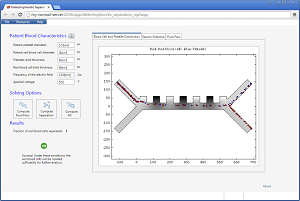
Dielectrophoretic Separation
Dielectrophoresis is a phenomenon in which an electric field is used to control the movement of electrically neutral particles. Learn about how to model this effect in both DC and AC fields.
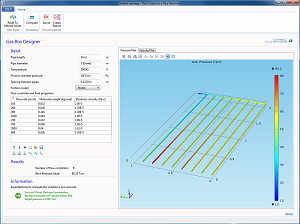
Creating an App for Modeling Flow Control in a Pipe Network
Simulation apps can be used as dedicated tools for modeling the flow and pressure distribution inside a network of connected pipes. This would be useful in, for example, semiconductor processing.
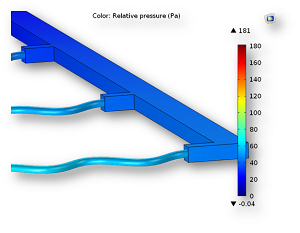
How to Easily Connect 1D Pipes to 3D Flow Domains
You can easily connect 1D pipes to 3D flow domains for your pipe flow simulations using a feature in the Pipe Flow Module available as of COMSOL Multiphysics® version 5.0.
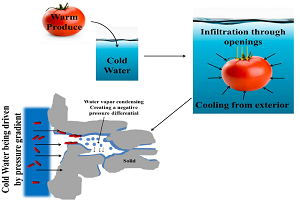
Hydrocooling Analysis for Fresh Produce Safety
During the hydrocooling process for tomatoes, bacteria can seep through and contaminate the food, making it unsafe to ingest. Researchers from Cornell University used simulation to investigate.
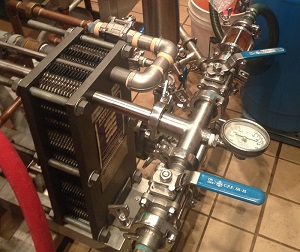
Improving the Beer Brewing Process with Simulation
Which side of home beer brewing are you more interested in: The culinary side, like the recipes and ingredients, or the engineering one, like the conjugate heat transfer and chemical reactions?
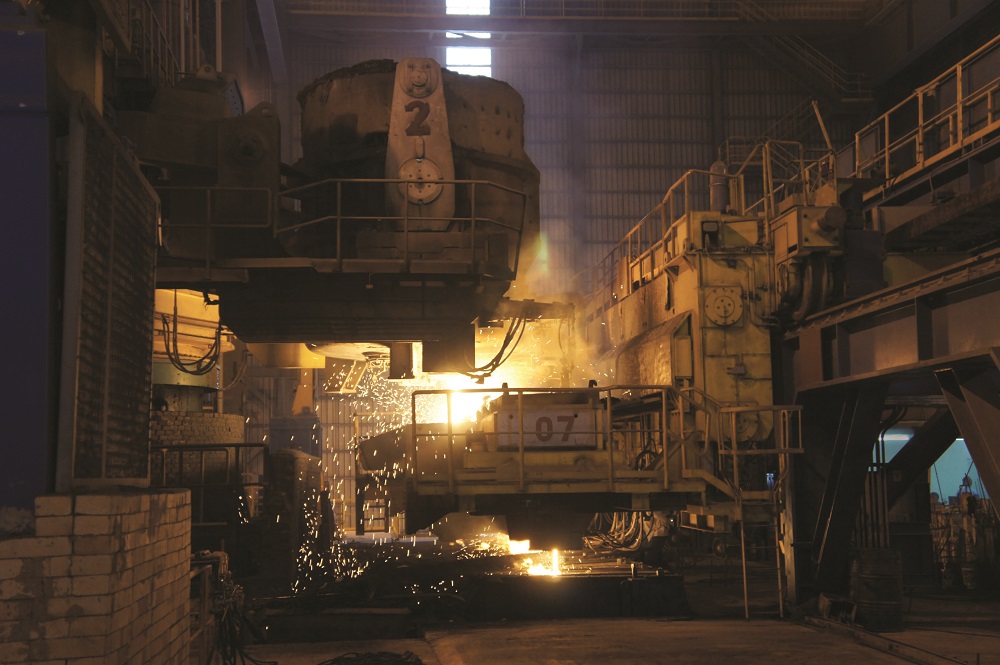
Optimizing the Continuous Casting Process with Simulation
To optimize the steelmaking process of continuous casting, researchers at SMS Concast turned to simulation. One result? A steelmaking plant in Taiwan reduced yearly CO2 emissions by ~40,000 tons.

Understanding Traffic Congestion via Equation-Based Modeling
Boring, frustrating, extremely inconvenient: We’ve all experienced a traffic jam when trying to get from Point A to Point B. Researchers used equation-based modeling to study traffic congestion.

The Physics Behind Baseball Pitches
3 forces affect a baseball pitch after leaving a pitcher’s hand: gravity, drag, and the Magnus force. Gravity pulls the ball down, drag slows the ball, and the Magnus force depends on the pitch.
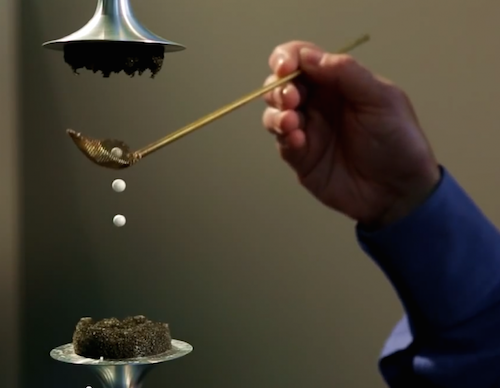
Acoustic Levitation Puts a Pure Spin on Medicine Fabrication
Engineers from Argonne National Laboratory used multiphysics simulation and trial-and-error prototyping to optimize the effectiveness of an acoustic levitator for medical fabrication.
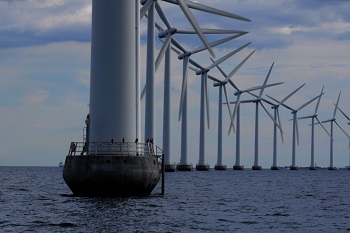
Seas of Change for Wind Turbines
One benefit of placing wind turbines offshore? They can’t be heard! Even better? High winds occur with more regularity offshore, making energy production more effective!
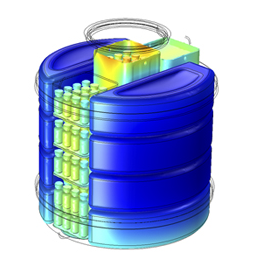
Portable Cordless Vaccine Storage Device
Their goal? To optimize the design of a passive vaccine storage device. Their tactic? Combining experimentation with the modeling of thermal and vacuum systems in COMSOL Multiphysics®.
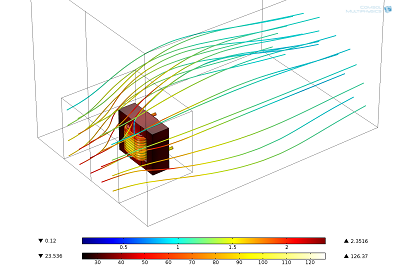
Modeling Convective Cooling of Electrical Devices
We developed a model that includes all of the important details of thermal management in a high-power electrical device. To do so, we needed to use high performance computing with hybrid modeling.
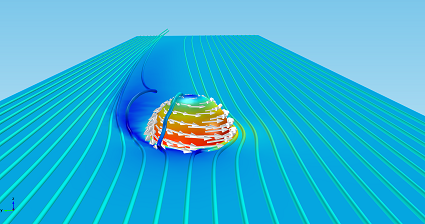
The Magnus Effect and the FIFA World Cup™ Match Ball
In celebration of the 2014 FIFA World Cup™, we show you some interesting CFD analyses of the FIFA World Cup™ match ball — and how it exhibits the Magnus effect when in play.
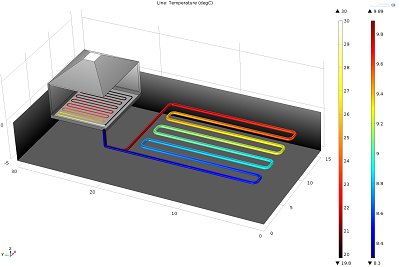
Geothermal Energy: Using the Earth to Heat and Cool Buildings
Learn how to accurately predict the thermal performance of a shallow tubing heat collector design for geothermal heating applications. Part 3 of our blog series on geothermal energy.
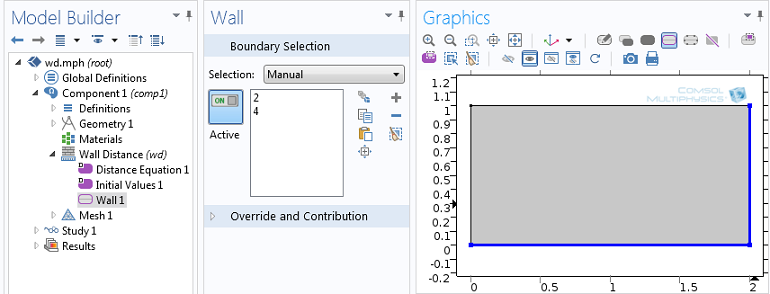
Tips for Using the Wall Distance Interface
The Wall Distance interface can be used to calculate the distance to the nearest wall or detect when a moving object will hit a wall. Learn how to implement this interface in CFD simulations.

Characterizing the Flow and Choosing the Right Interface
No matter the focus of your modeling project, you have probably had to consider fluid flow at some point. Here, we discuss how to characterize the flow and choose the correct CFD interface.
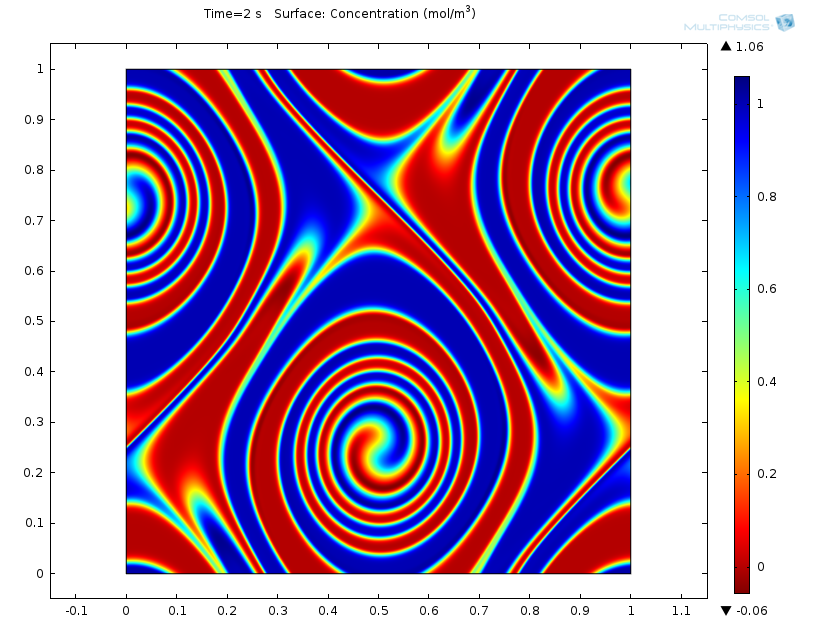
Simulating Kelvin-Helmholtz Instability and Climate Dynamics
Q: What do heated soap bubbles, wavy clouds, and Jupiter’s Great Red Spot have in common? A. An unstable motion called Kelvin-Helmholtz instability.
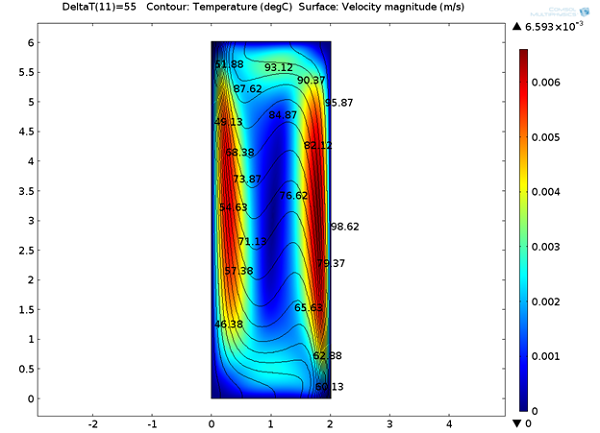
Buoyancy-Driven μPCR for DNA Amplification
True crime + simulation: The more DNA in a sample, the easier it is to accurately test and identify biomolecules, cells, and even an entire person during forensic investigations.
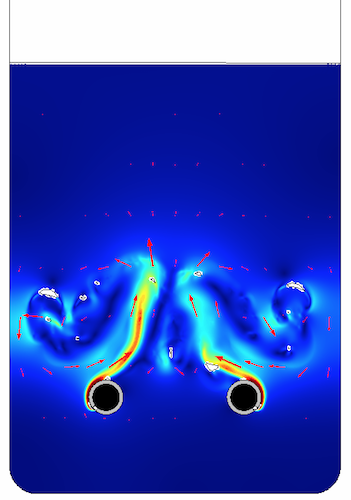
Improving Bioreactor Performance with COMSOL Multiphysics
A guest blogger from Continuum Blue gives an overview of what the consultancy can do using simulation for their biomedical engineering clients.
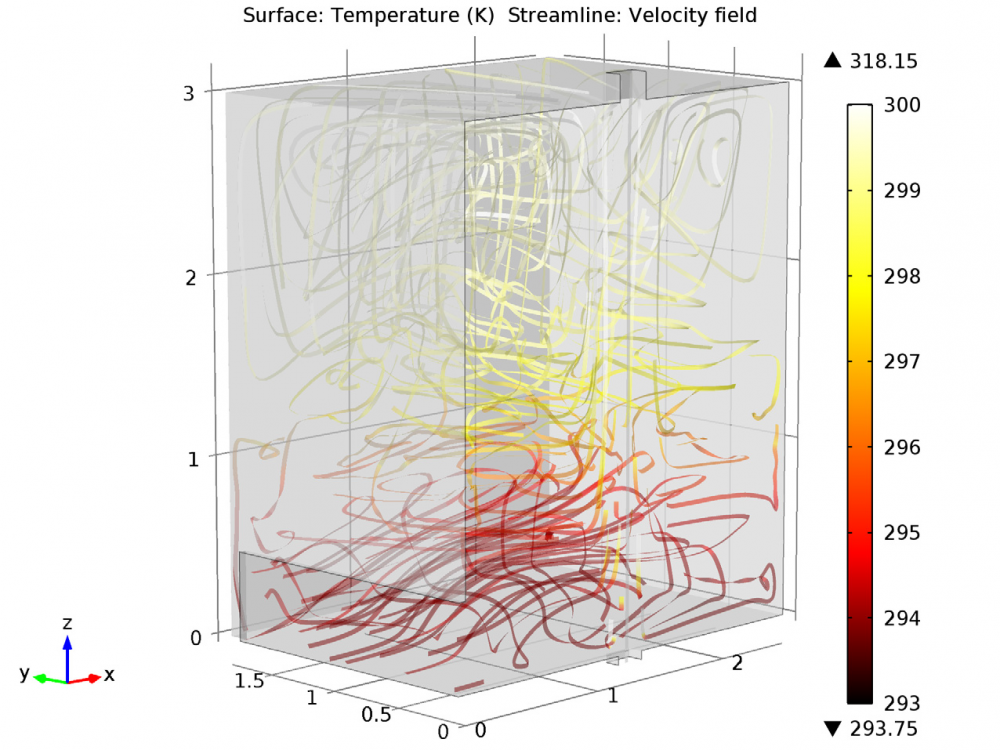
Modeling a Displacement Ventilation System
There are 2 different types of ventilation systems: mixing ventilation and displacement ventilation. Displacement ventilation is mainly found in offices, schools, and other public spaces.
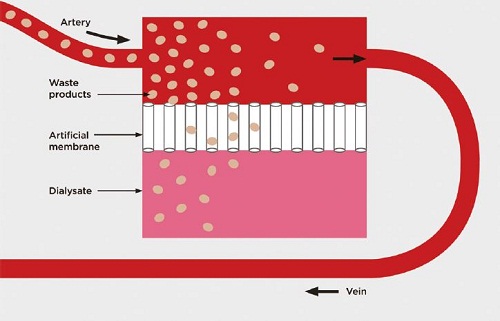
Optimizing Dialyzer Design Using Multiphysics Simulation
A while back, I had the opportunity to speak with Steven Conrad, a critical care physician at the Louisiana State University (LSU) Health Science Center in New Orleans. Not only is Dr. Conrad a physician as well as a professor at LSU, he’s also a biomedical engineer who uses finite element analysis (FEA) to conduct research on the design of dialyzers. Dr. Conrad uses COMSOL Multiphysics to gain a deeper understanding of the physics behind these devices, and to create […]
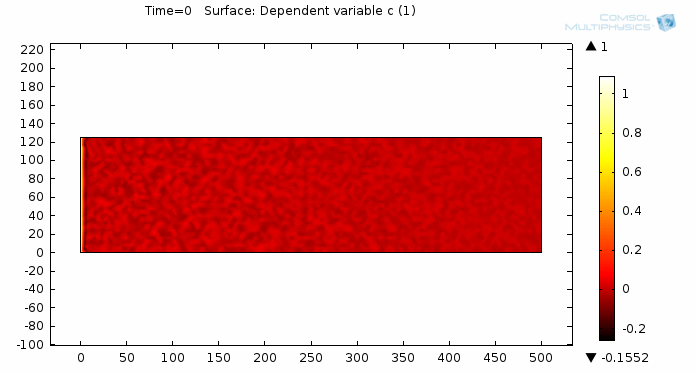
Simulating Viscous Fingering Using Equation-Based Modeling
A prospective user of COMSOL approached me about modeling viscous fingering, which is an effect seen in porous media flow. He hadn’t found a satisfying solution elsewhere, so he turned to COMSOL. I’d like to share with you some of my insight on how to go from idea to model to simulation by taking a “do-it-yourself approach” and utilizing the equation-based modeling capabilities of COMSOL Multiphysics.
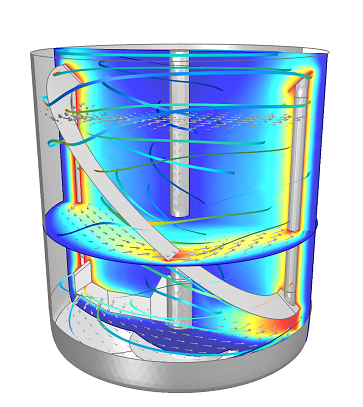
New Mixer Module Showcases CFD Capabilities of COMSOL
The Mixer Module provides ready-made interfaces for describing the difficult problem of laminar and turbulent flows in rotating machinery with free liquid surfaces. COMSOL has been developing different techniques for modeling CFD, moving geometries, and free surfaces during the past few years for a number of different applications. This has now culminated in the new Mixer Module that was released with version 4.4, and it clearly showcases the improved CFD capabilities of COMSOL.
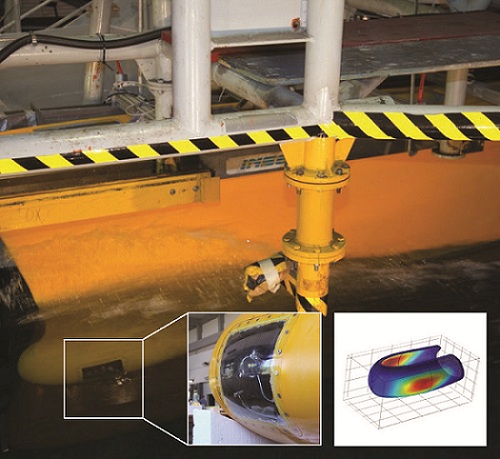
Starting Small with Sonar Dome Design
Starting the design process by testing on a small scale is often the best way to tackle issues affecting large objects, like a ship. Detailed in COMSOL News 2013, researchers at INSEAN, The Italian Ship Model Basin, used small-scale testing and then simulation to analyze the effect of placing a sonar system within the bulbous bow at the hull of a ship. Using a small-scale model of a bulbous bow, the researchers at INSEAN performed fluid-structure interaction experiments, and subsequently […]
